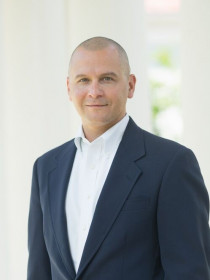
Abraham Goldberg
Connect with Abraham
About Abraham
Goldberg's research focuses on civic learning and engagement, American democracy, community placemaking and higher education. Embedded in all of his work is a deep commitment to building a more inclusive, just and equitable society. Goldberg previously served as director of the James Madison Center for Civic Engagement at JMU and as director of the Office of Service-Learning and Community Engagement at the University of South Carolina Upstate. He has been a Civic Fellow with AASCU’s American Democracy Project, recently served on the Educating for American Democracy initiative’s advisory board and is on the core team developing a new Virginia Civic Engagement Index.
Contributions
Publications
Discusses political science and politics.
Addresses how a small private liberal arts college in a major metropolitan area and a large comprehensive university in a rural area of the United States advance and assess civic learning and engagement initiatives in a time when democracy is being threatened.
Takes a hard look at the state of American democracy today through the lens of one of the nation’s most important actors: colleges and universities. Explains democracy is more than voting: it includes a wide range of democratic practices and depends on a culture of civic participation.
Examines the direct and indirect effects of the city environment on happiness. Hypothesizes that citizens’ ratings of their city along dimensions of performance (e.g., basic – usually government – services related to education, healthcare, social services, and policing) and place (e.g., the beauty of the city and a built environment that provides access to cultural, sport, park, transport, and shopping amenities) would be significant predictors of happiness but that the nature of these effects would change over the lifespan.
Examines social capital formation beyond the individual level through a variety of disciplines: planning, economics, regional development, sociology, as well as non-traditional approaches like engineering and built environmental features.